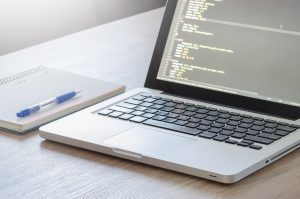 If your resolution this term is to be more efficient when studying, a good area to focus on is your reading and note-making. Independent reading and taking notes are likely to make up a large part of your study time at university, so a few small adaptations to your reading strategies could potentially save you a lot of time over the term.
If your resolution this term is to be more efficient when studying, a good area to focus on is your reading and note-making. Independent reading and taking notes are likely to make up a large part of your study time at university, so a few small adaptations to your reading strategies could potentially save you a lot of time over the term.
Reading with a purpose
The Study Advice team has a guide on managing academic reading which includes ideas on how to select material, deciding how much to read, and reading techniques. We also have a brief video tutorial on reading academic texts that introduces the kind of reading needed for academic work and appropriate strategies.
To get started, try this simple three-step plan to make your reading more active and targeted:
1. Understand the purpose for your reading:
2. Think about what you need to find out:
Ask yourself what you already know about the topic, from previous lectures, seminars or wider knowledge. Use this to identify your gaps and what you need to find out – it can be useful to phrase this as a series of questions so you can then search for answers to those questions.
3. Identify where you can find this information:
Your reading list is often a helpful place to start – the Library has a guide to understanding your reading list. But to get the best marks you will most likely need to go beyond your reading list – see the Library guide on doing your literature search for information on where to look, effective search tips, finding the items you need. For targeted resources and more advice on finding information in your subject, take a look at your subject resources pages or contact your subject liaison librarian.
 Note this!
Note this!
Efficient reading goes hand-in-hand with good note-making, so if you feel you are being slowed down by taking too many, or too few notes, have a look at our guide to effective note-taking and our video tutorial on critical note-taking.
The secret is not trying to capture everything you’ve read (or you’ll just end up with more notes than there are pages in the book itself!) but to keep good records so you know where to find the information again when you need it. Watch this short video tutorial on finding bibliographical details you need for note-making and referencing. If you find it hard to keep track of your references, consider using reference management software, such as EndNote.
Spending too long reading?
Reading is a potentially open-ended task – there is always one more book or journal article in the Library that you could read. If you feel your reading is taking too long, have a look at the Study Advice guides on managing your time and our video tutorial on how to make more hours in the day.
If you find it difficult to focus on your reading, list the things that distract you and take steps to deal with these distractions. For example, disable pop-up notifications on your phone if you know social media can easily draw your attention away from your reading. Another helpful strategy is to think about the time of day when you are most focused and productive, and use your best thinking time to tackle the most difficult texts.
Putting limits around your reading time and stopping it from becoming an endless task can also improve your efficiency and your motivation! Make an estimate of how much time you need to do your reading, break your reading down into manageable chunks, and schedule it into a weekly study timetable. For more advice on how to make one, watch our video tutorial on making a study timetable.
Need more help?
If you need more advice on how to manage your reading and improve your note-taking techniques, contact the Study Advice team to book an appointment.
This is one of a series of tips to help you save time and effort finding or using information.
This tip was written by Dr Michelle Reid, Study Adviser.
 On Monday 21 January, books began moving from the 2nd Floor to the newly reopened 4th Floor.
On Monday 21 January, books began moving from the 2nd Floor to the newly reopened 4th Floor.

 We now have access to Kanopy!
We now have access to Kanopy!
 When you’re searching online for information for your assignments, you’ll find a wealth of information – but how do you know what you can trust? What’s reliable enough to be included in your academic work?
When you’re searching online for information for your assignments, you’ll find a wealth of information – but how do you know what you can trust? What’s reliable enough to be included in your academic work? If your resolution this term is to be more efficient when studying, a good area to focus on is your reading and note-making. Independent reading and taking notes are likely to make up a large part of your study time at university, so a few small adaptations to your reading strategies could potentially save you a lot of time over the term.
If your resolution this term is to be more efficient when studying, a good area to focus on is your reading and note-making. Independent reading and taking notes are likely to make up a large part of your study time at university, so a few small adaptations to your reading strategies could potentially save you a lot of time over the term. Note this!
Note this! Welcome Back Week starts on Monday 21 January and we’re getting involved at the Library!
Welcome Back Week starts on Monday 21 January and we’re getting involved at the Library! The intermittent problem with access to many of our e-resource platforms has now been resolved, and you should be able to access all e-resources as normal.
The intermittent problem with access to many of our e-resource platforms has now been resolved, and you should be able to access all e-resources as normal.

 Have you been marked down for inconsistencies in referencing? Are you fed up with writing all of your references for your dissertation by hand? There are programs that store your references and help you create bibliographies in Microsoft Word. We’re running sessions throughout the Spring Term covering the variety of options available – whether you’re working on your dissertation or starting your PhD, come along and find out how much time you can save! You can book onto any of these beginner sessions on
Have you been marked down for inconsistencies in referencing? Are you fed up with writing all of your references for your dissertation by hand? There are programs that store your references and help you create bibliographies in Microsoft Word. We’re running sessions throughout the Spring Term covering the variety of options available – whether you’re working on your dissertation or starting your PhD, come along and find out how much time you can save! You can book onto any of these beginner sessions on  Got a new laptop for Christmas? Using your tablet in the Library buildings? Left your phone on your desk?
Got a new laptop for Christmas? Using your tablet in the Library buildings? Left your phone on your desk? If you’ve ever felt a little overwhelmed by the range of resources that the Library has on offer then you might want to get help from your very own subject Liaison Librarian or explore one of our dedicated subject guides.
If you’ve ever felt a little overwhelmed by the range of resources that the Library has on offer then you might want to get help from your very own subject Liaison Librarian or explore one of our dedicated subject guides. To access the guide for your subject just click on the “Explore key resources in your subject” in the ‘Help for your subject’ section of the Library website homepage, or go directly to our
To access the guide for your subject just click on the “Explore key resources in your subject” in the ‘Help for your subject’ section of the Library website homepage, or go directly to our